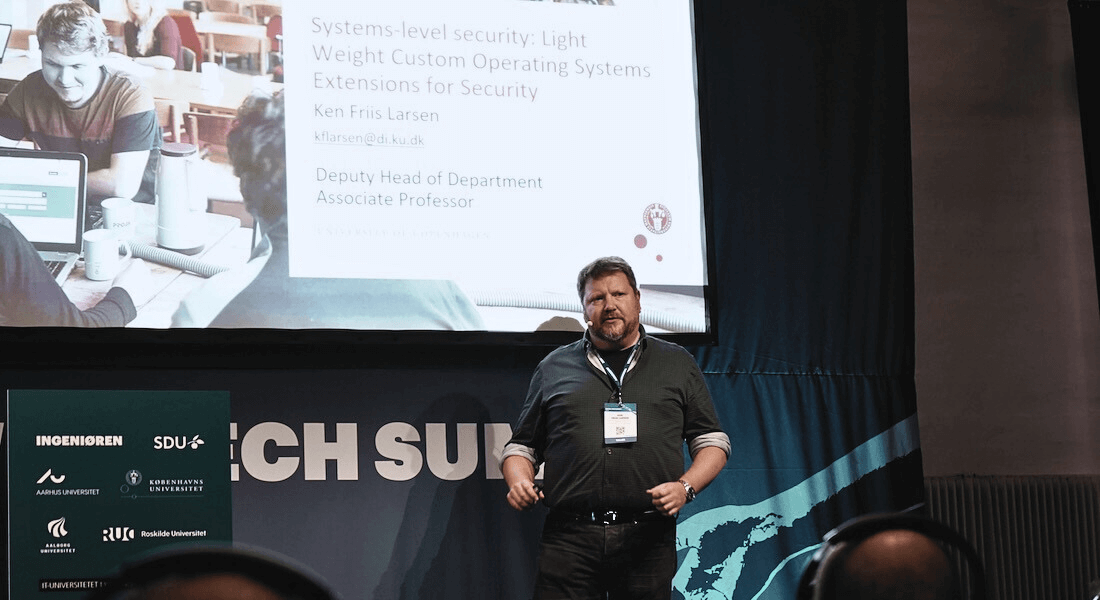Security in future energy systems: Researcher working on a more flexible security system
In a time of conflicts and imbalances in global markets, there is an increasing focus on strengthening the security of critical infrastructure. Ken Friis Larsen, Associate Professor of IT security and Deputy Head of Teaching at the Department of Computer Science, is working to develop more flexible IT solutions that can create the necessary security in the energy sector.

Power in the socket, heat in the radiator and water in the tap. When we talk about critical infrastructure, we are referring to digital systems that control our energy sources and around which our society is largely built. If disrupted, the consequences can be severe.
Protecting the supply network against hacker attacks and other vulnerabilities is an essential task of today, says Associate Professor Ken Friis Larsen. As an expert in IT security, he points out that the systems are threatened by both internal and external attacks:
“We fear that natural disasters could affect large parts of the infrastructure, creating a domino effect where one system overloads the next until suddenly everything shuts down. On a geopolitical level, there are also fears of hybrid warfare, where an external enemy might launch an attack with major consequences,” explains Ken Friis Larsen.
Security in uncertain times
So what could be a possible way to make systems more resilient?
Ken Friis Larsen and his research group are working to create flexible solutions that can be adapted to meet each company’s unique security needs – as these needs arise.
More specifically, they are developing system solutions that can give energy companies, among others, greater programming power, allowing them to "patch" potential security holes that might emerge when using different programs.
In this way, companies can protect themselves against possible crashes or chain reactions that can occur when systems are attacked. It's a way to ensure more stability, Ken Friis Larsen explains.
“Companies are often faced with an impossible choice of security versus not security when they discover a hole in the IT systems they use. I hope that in the future we can think about security in a more nuanced way. It doesn't necessarily have to be so black and white. I want to create more flexible security solutions and thus make it more accessible to have security solutions that are specific to the individual company,” says Ken Friis Larsen.
Hear expert perspectives on security in future energy systems at Digital Tech Summit 2024
At the Digital Tech Summit on 30 and 31 October, you can hear how Ken Friis Larsen is working to develop this flexible IT security in the energy sector.
In addition, two researchers from DTU and AAU will give their perspectives on how we create security in future energy systems.
During the presentation, you will also get insights into what it is like to be a company in the energy sector and how they work to create the necessary resilience through a case from the energy company RadiusElnet.
Contact
Ken Friis Larsen
Associate Professor
Department of Computer Science, University of Copenhagen
+45 51 94 65 45
kflarsen@di.ku.dk
Communication
Department of Computer Science, University of Copenhagen
kom@di.ku.dk
